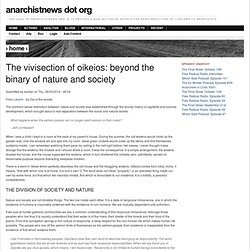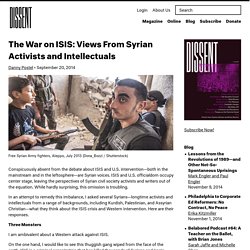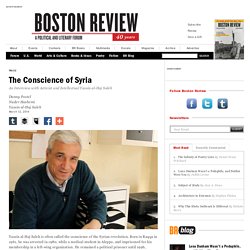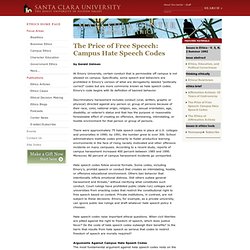

Why Do Many Reasonable People Doubt Science? There’s a scene in Stanley Kubrick’s comic masterpiece Dr.

Strangelove in which Jack D. Ripper, an American general who’s gone rogue and ordered a nuclear attack on the Soviet Union, unspools his paranoid worldview—and the explanation for why he drinks “only distilled water, or rainwater, and only pure grain alcohol”—to Lionel Mandrake, a dizzy-with-anxiety group captain in the Royal Air Force. Ripper: Have you ever heard of a thing called fluoridation? Fluoridation of water? Mandrake: Ah, yes, I have heard of that, Jack. Ripper: Well, do you know what it is? Mandrake: No. Ripper: Do you realize that fluoridation is the most monstrously conceived and dangerous communist plot we have ever had to face? As We Go Marching (LvMI):Amazon:Kindle Store. The vivisection of oikeios: beyond the binary of nature and society. From Libcom - by Out of the woods The common-sense distinction between nature and society was established through the bloody history of capitalist and colonial development, which brought about a real separation between the social and natural worlds.

What happens when the salmon people can no longer catch salmon in their rivers? - Jeff Corntassel When I was a child I slept in a room at the back of my parent’s house. During the summer, the old wisteria would climb up the garden wall, over the window-sill and spill into my room. There is a word in Greek which perfectly describes the old house and the straggling wisteria. Nature and society are not divisible things. If we look at hunter-gatherer communities we see a common understanding of this reciprocal immanence. Like Cherokee or Nishnaabeg peoples, Zapotecs have their own word to describe belonging as responsibility. Material of interest to people on the left. The War on ISIS: Views From Syrian Activists and Intellectuals. Conspicuously absent from the debate about ISIS and U.S. intervention—both in the mainstream and in the leftosphere—are Syrian voices.

ISIS and U.S. officialdom occupy center stage, leaving the perspectives of Syrian civil society activists and writers out of the equation. While hardly surprising, this omission is troubling. In an attempt to remedy this imbalance, I asked several Syrians—longtime activists and intellectuals from a range of backgrounds, including Kurdish, Palestinian, and Assyrian Christian—what they think about the ISIS crisis and Western intervention.
Here are their responses. Three Monsters I am ambivalent about a Western attack against ISIS. On the one hand, I would like to see this thuggish gang wiped from the face of the earth. Western powers could have avoided this had they helped the Syrian resistance in its battle against the fascist Assad regime. Let me finally say that I am very skeptical of the plans and intentions of the American administration. No Shortcuts. The Conscience of Syria. Yassin al-Haj Saleh is often called the conscience of the Syrian revolution.

Born in Raqqa in 1961, he was arrested in 1980, while a medical student in Aleppo, and imprisoned for his membership in a left-wing organization. He remained a political prisoner until 1996, spending the last of his sixteen years behind bars in the notorious desert-prison of Tadmur (Palmyra). Saleh has emerged as one of the leading writers and intellectual figures of the Syrian uprising, which began three years ago this week.
In 2012 he was given the Prince Claus Award (supported by the Dutch Ministry of Foreign Affairs) but was unable to collect it, as he was living in hiding in Damascus. Now living in exile in Turkey, Salehwrites for a variety of international Arabic-language publications. Free Speech: Campus Hate Speech Codes. The Price of Free Speech: Campus Hate Speech Codes by Gerald Uelmen At Emory University, certain conduct that is permissible off campus is not allowed on campus.

Specifically, some speech and behaviors are prohibited in Emory's version of what are derogatorily labeled "politically correct" codes but are more commonly known as hate speech codes. Emory's code begins with its definition of banned behavior. Discriminatory harassment includes conduct (oral, written, graphic or physical) directed against any person or, group of persons because of their race, color, national origin, religion, sex, sexual orientation, age, disability, or veteran's status and that has the purpose or reasonably foreseeable effect of creating an offensive, demeaning, intimidating, or hostile environment for that person or group of persons. There were approximately 75 hate speech codes in place at U.S. colleges and universities in 1990; by 1991, the number grew to over 300.
Hate speech codes follow several formats. The 67 People As Wealthy As The World's Poorest 3.5 Billion. Bribes, Favors, and a Billion-Dollar Yacht: Inside the Crazy World of the Men Who Do Oil Companies’ Dirty Work. Posted by Tim McDonnell on Thursday, May 15, 2014 Journalist Ken Silverstein gained unprecedented access to a hyper-reclusive cabal of powerful billionaires.

Men walk past an illegal oil refinery in Nigeria, one of the countries where US companies rely on fixers to arrange deals. Sunday Alamba/AP Photo When big oil companies like Exxon-Mobil and Chevron set their sights on a prime new oil reserve in Africa, Asia, or the Middle East, the first phone call they make usually isn’t to the government office putting it up for sale. Instead, they ring up one of their contacts in a small, elite group of so-called “fixers,” a shady cabal of a few dozen well-connected billionaires who hold the strings on the market for the world’s most valuable commodity. The 8 Best Lines From Ginsburg's Dissent on the Hobby Lobby Contraception Decision.